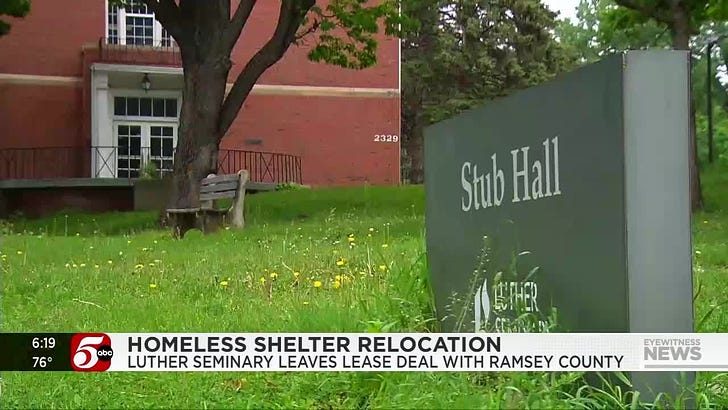
Discover more from Lutheran Confessions
I love conversations with inquirers. Although we always have new people arriving at GSLC, this summer season has been especially full of phone calls or text messages that basically go like this:
“I’m having this spiritual experience, and my [friend or relative] said I should check out your social media feed and worship. Can we meet? I’m new to all of this and I don’t even know where to start!”
Bottom line, inquirers are interested in a community that walks the walk. The list of things they value is often similar: LGBTQIA solidarity, providing resources in the community, preaching that overtly names and addresses social injustices, and more generally a community that doesn’t just call itself bible-believing, but actually reads and speaks from the Bible in worship and in action.
Increasingly I am meeting people who are discovering interest in religious community who were not raised in religious contexts. Even some of the stories from Scripture that saturate holidays like Christmas are unfamiliar. So they’re literally new to it altogether, attracted either by direct experiences of the mystical, or because they want to be part of a community committed to justice.
Then in person, after amazing stories of what first initiated an awakening or desire for transition (since a lot of our people also come out of contexts of religious trauma), the basic question becomes:
So I don’t even know where to start. What do I do?
This is a good question. It’s THE question. And sitting there, I’m often a little at a loss. I do not want to offer a simple formula, because the simple formula–do these five things and then accept Jesus into your heart–is fake and manipulative.
And yet I do have a couple of recommendations. I suggest at least these things:
1) Honor the journey you’ve been on thus far. It’s beautiful that you’re paying attention to your spirit, these little or big awakenings that are happening. That’s a holy thing, just the start of such a journey itself.
2) You won’t get this sorted out in a weekend event, or by reading one book. Getting to know an entire religious tradition (not to mention one local congregation if you decide to join one) is a long journey of discovery. You’re right to recognize you don’t even know what you don’t know.
3) For the local community, it’s really just about showing up and getting to know people. Do all the “joining” things (and no, there really aren’t rules, you’re welcome to come to all the things even if you aren’t a “member”). Sign up for the e-mail. Come for a service. Watch the live-stream. Follow people or make friends on social media. You find out what a real community is like through participation, and over time. Sometimes we will awe you. Sometimes we will disappoint you. It’s good to know all of that from the outset, and to expect it. Churches are made up of people, after all.
4) For the denominational side of the question, I apologize that American culture has made this both a panoply of options and also difficult to choose. It’s like going into a restaurant where the menu is too long. There are so many flavors of Christianity. But the reality is that most denominations are functionally congregational, so what the church is like has a lot to do with the local congregation. That’s important to keep in mind. But then, for our own denomination, we try to be very public about our social statements, our beliefs, our commitments. Follow the ELCA on-line, check out the web site, and if you’re a history or theology nerd, and only if you’re a history or theology nerd, I’ll be happy to recommend 10-20 books for you in a list.
5) We’re a progressive church. We’re way over on the left. That’s probably what first interested you. Contrary to what dominant culture Christianity has tried to teach, we actually exist and it’s really a way. For us, it’s less about doctrine, or paternalistic structure, and more about going to the margins as Jesus did and living solidarity with others in his way.
6) I’m often confused by who we are now. Let me confess that as the pastor. I’m on this journey of discovery also with all y’all. I’m a Lutheran who doesn’t always know what we mean by claiming we’re Lutheran. I’m not always positive it’s good for us to still call ourselves that, although enough people have told me it’s helpful for the sake of transparency to name our origins. I really love the Bible and preach from it. What might surprise you is that I’m much more focused on the Bible than the average “Bible” church, but precisely for that reason I also think of the Bible as a holy book that is also a big fantastic and fascinating library of texts to be read similar to other classics like the Odyssey. I’m probably going to be more honest than you’d even like on what parts of the Bible I think are mythic, propaganda, distorted. But unlike some progressives who then kind of reject Scripture, I tend to love it all the more and read it generously precisely because it’s such a mess.
7) Finally, I apologize, but we’re still (yes, really, still at this late date) impacted by the pandemic. How we engage church right now is very different. There are still many latent impacts that make us appear different from who we have been. We still have long time members returning for the first time. Since some holidays only happen once a year, some of our holidays this fall are the first time we’ve hosted it since 2019.
8) As you can see, I don’t have good bumper sticker slogans and theology. Any religion is a ginormous thing that takes a lifetime to engage. If you want to explore this faith with me, I’d love to explore it with you, but it’s like walking into the Grand Canyon. It’s gorgeous, and huge, and you should bring a lot of water.
Subscribe to Lutheran Confessions
Reflections from a progressive Lutheran pastor in the South.





